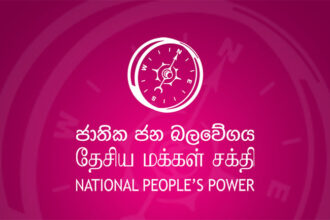Indian Prime Minister Narendra Modi’s upcoming state visit to Guyana in November marks a pivotal moment in the bilateral relationship between India and Guyana.
This visit is historic as it is the first by an Indian Prime Minister in decades, underscoring India’s renewed focus on strengthening ties with the South American and Caribbean region.
As Guyana is a member of the Caribbean Community (CARICOM) and holds a strategic position in the region, Modi’s visit is anticipated to foster deeper cooperation in several key areas, from energy and trade to cultural diplomacy and sustainable development.
The significance of this visit lies not only in cementing India-Guyana relations but also in expanding India’s role in the broader CARICOM framework.
The bond between India and Guyana is deeply rooted in history, culture, and shared heritage.
The connection began between the two countries in the 19th century when indentured labourers from India, mainly from Uttar Pradesh and Bihar, were brought to Guyana by British colonists to work on sugar plantations.
Today, the descendants of these labourers make up over 40 percent of Guyana’s population, making Indo-Guyanese one of the most significant ethnic groups in the country.
This Indian diaspora has preserved its cultural heritage, contributing to Guyana’s vibrant social fabric and maintaining a link to India’s cultural legacy.
India and Guyana formally established diplomatic relations shortly after Guyana gained independence in 1966.
Since then, the two nations have maintained cordial relations, with India extending support to Guyana through economic, technical, and capacity-building assistance.
Over the years, India has provided Guyana with scholarships for students, technical training under the Indian Technical and Economic Cooperation (ITEC) programme, and support in agriculture, healthcare, and information technology (IT).
Additionally, both countries have frequently supported each other on global platforms such as the United Nations (UN).
Prime Minister Modi’s visit to Guyana is historic for several reasons.
Given that Guyana is experiencing rapid economic growth driven by its expanding oil and gas industry, India’s engagement comes at a critical time when the island nation is seeking new partnerships to diversify its economic base and improve infrastructure.
The timing of Modi’s visit also aligns with India’s growing engagement with the CARICOM group of nations.
Prime Minister Modi previously held discussions with CARICOM leaders in 2019, where he emphasised India’s commitment to Caribbean development.
His visit to Guyana, a leading CARICOM member, further demonstrates India’s intent to enhance its diplomatic and economic relations with the Caribbean bloc, addressing shared challenges such as climate change, disaster resilience, and sustainable development.
PM Modi’s visit to Guyana is expected to focus on several areas of cooperation, each holding significant potential for mutual benefit.
Energy and natural resources: Guyana has become one of the fastest-growing economies in the world due to its burgeoning oil and gas sector.
Since 2015, offshore discoveries have transformed the nation’s economic landscape, making it a focal point for global energy investment.
India, being one of the world’s largest energy consumers, has a keen interest in securing access to Guyana’s oil and natural gas resources.
Modi’s visit could lead to agreements for energy cooperation, potentially facilitating Indian investments in Guyana’s energy sector and securing long-term oil supply contracts for India.
Furthermore, as both countries look to address climate change, there is potential for collaboration in renewable energy projects.
India’s expertise in solar energy through initiatives like the International Solar Alliance (ISA) can support Guyana’s ambition to diversify its energy mix and reduce its carbon footprint.
Joint projects in solar and wind energy could serve as a foundation for broader environmental cooperation.
Trade and economic partnerships: Trade between India and Guyana has been limited but steadily growing, with India exporting machinery, pharmaceuticals, and refined petroleum products to Guyana.
Guyana, in turn, exports bauxite, timber, and agricultural products to India.
Narendra Modi’s visit is expected to include discussions on enhancing bilateral trade and removing barriers to business.
Strengthening trade ties will create new market opportunities for both countries and contribute to economic growth.
Investment in infrastructure is another potential area for collaboration.
Guyana, with its expanding economy, requires significant investment in infrastructure, such as roads, ports, and housing.
Indian companies specialising in infrastructure development could play a role in these projects, facilitating technology transfer and creating employment opportunities.
Healthcare and capacity building: India has long supported Guyana in the healthcare sector, particularly through its provision of affordable pharmaceuticals and medical expertise.
During the Covid-19 pandemic, India supplied Guyana with vaccines, which strengthened India’s image as a reliable partner in times of crisis.
Meanwhile, another Caribbean nation, the Commonwealth of Dominica, has announced that it will present its highest national honour, the Dominica Award of Honour, to PM Narendra Modi, recognising his significant contributions during the Covid-19 pandemic and his commitment to enhancing India-Dominica relations.
According to reports, the award will be presented to PM Modi during the upcoming India-CARICOM Summit, scheduled to take place in Georgetown, Guyana, from November 19 to 21.
Experts believe Modi’s state visit to Guyana could pave the way for new healthcare partnerships, such as setting up telemedicine facilities, training healthcare professionals, and expanding access to generic medicines.
Additionally, India could offer support for upgrading medical infrastructure and technology, ensuring that quality healthcare reaches even remote areas in Guyana.
Education and cultural exchange: Education and cultural exchange are pillars of India-Guyana relations.
Through the ITEC programme, India has provided technical training to hundreds of Guyanese professionals.
PM Modi’s visit may result in expanded educational partnerships, scholarships, and opportunities for Guyanese students to study in India.
Additionally, as Indo-Guyanese people maintain strong cultural ties to India, Modi’s visit provides an opportunity to celebrate and further strengthen this bond.
Initiatives in areas such as yoga, traditional medicine, and Indian cinema can deepen cultural connections and promote mutual understanding.
Guyana’s geopolitical location on the northern coast of South America positions it as a strategic partner for India in the Caribbean.
As a member of CARICOM, Guyana plays an influential role in regional affairs, and its relationship with India can act as a gateway for India to increase its engagement with other Caribbean nations.
Modi’s visit can strengthen India’s influence in CARICOM, enabling India to collaborate with the Caribbean region on key issues such as climate resilience, disaster management, and food security.
The Caribbean region faces acute challenges from climate change, including rising sea levels and severe weather events.
India, with its expertise in disaster preparedness and renewable energy, is well-positioned to assist Caribbean nations in building resilience.
Guyana, as a CARICOM member with strong ties to India, can facilitate India’s involvement in regional climate initiatives and sustainable development efforts.
Prime Minister Narendra Modi’s state visit to Guyana in November is going to be a landmark event that will not only bolster India-Guyana relations but also enhance India’s engagement with the wider Caribbean region.
As Guyana emerges as an economic powerhouse in the Caribbean due to its oil reserves, India’s partnership with Guyana can provide mutual benefits in energy security, trade, and sustainable development.
Furthermore, the visit will celebrate the deep cultural and historical ties that bind India and Guyana, underscoring the importance of collaboration in tackling global challenges.
Modi’s visit is poised to open new avenues for cooperation, aligning the two nations’ efforts in addressing critical issues such as climate change, healthcare, and economic diversification.
This historic visit will serve as a catalyst for a strengthened partnership, setting the stage for a future where India and Guyana work closely to advance shared goals and drive progress in the region. (Times of Oman)
The post India-Guyana relations to get new boost with Indian PM Modi’s historic first state visit appeared first on Newswire.




